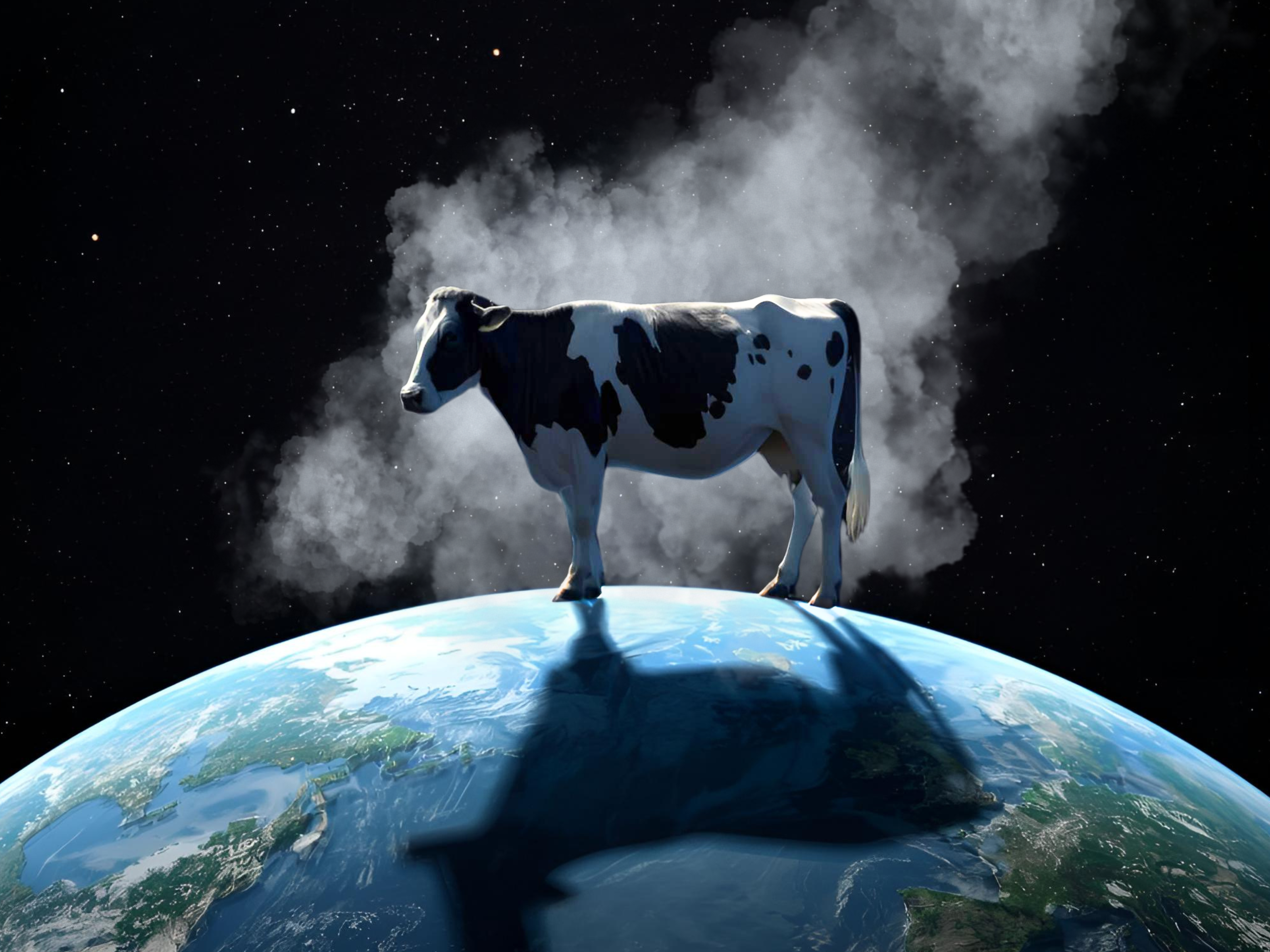
Four years after countries signed the Global Methane Pledge, the meat and dairy industry – the largest emitter of the gas – is still lagging.
Collectively, 52 of the largest meat and dairy producers emit 22 million tonnes of methane every year. If they were a country, they would be fifth on the list of the top emitters, almost on par with Russia.
That’s according to new research from Planet Tracker, which suggests that the Global Methane Pledge’s goal of reducing methane emissions by 30% by 2030 is “unachievable without a step change in action” from the livestock sector.
Methane has an outsized impact on the planet in the short term. It’s a gas 86 times more potent than CO2 over a 20-year period. It’s the primary contributor to the formation of ground-level ozone, which causes a million premature deaths every year.
The gas’s emissions are rising faster than ever before, growing by as much as 20% between 2000 and 2020. And if we don’t take any action, human-caused methane emissions will rise by up to 13% between 2020 and 2030, taking the world in the opposite direction on the path to 1.5°C.
The report comes on the eve of the UN’s annual climate summit, COP30, in Brazil, which will feature a sizeable contingent from the agrifood sector. But the animal agriculture industry is already looking to wield its influence – last year, it sent 52 delegates to the summit, three of whom were from JBS. And this year, the meat behemoth is a close partner of the presidency.
Only one livestock company has a specific methane reduction target
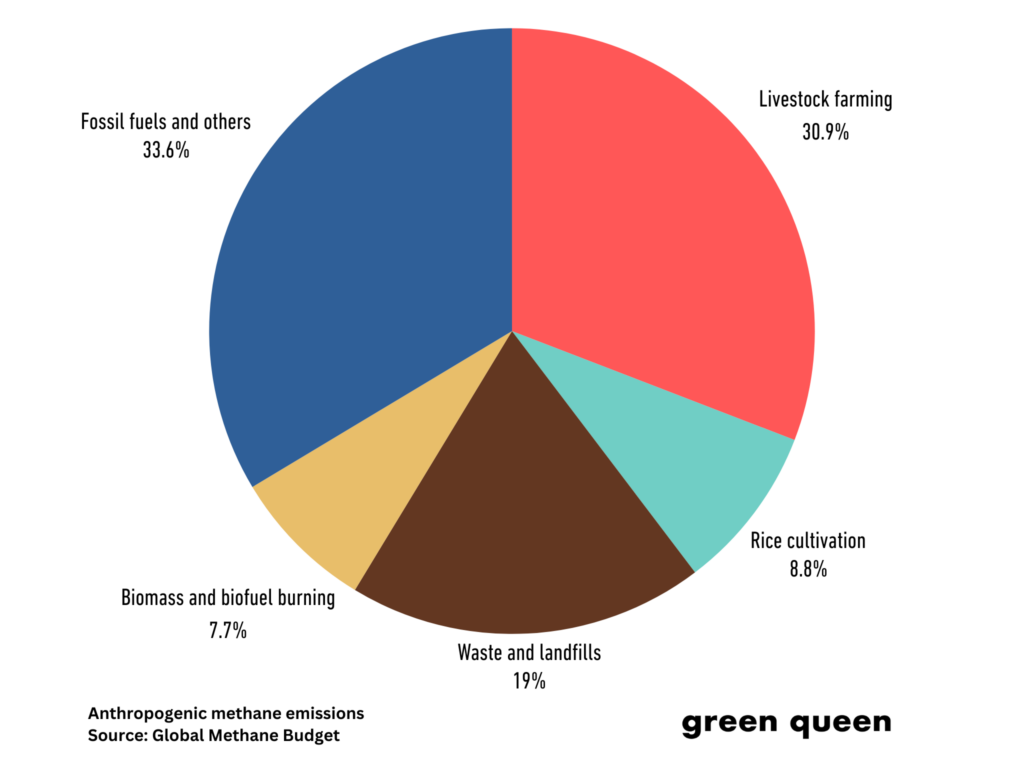
The meat and dairy industry is the biggest culprit of methane emissions, accounting for 31% of human-caused emissions. Cattle are ruminant animals with specialised digestive systems that allow them to digest foods that humans and most other animals can’t. When food enters their stomach, microbes and bacteria break down the particles, which ferment in a part of the stomach called the rumen and produce methane.
Every time cows belch or flatulate, they emit the methane into the atmosphere. To understand just how much this gas is central to cattle emissions, consider this: if we removed the warming effects of methane, the greenhouse gas footprint of beef production would be halved.
The 52 companies analysed by Planet Tracker – which produce meat, dairy and/or rice – account for 12% of all agricultural methane emissions. Of these, just seven have provided some kind of methane emissions disclosure: Cargill, Tyson Foods, Danone, Lactalis, Nestlé, Saputo and AB InBev.
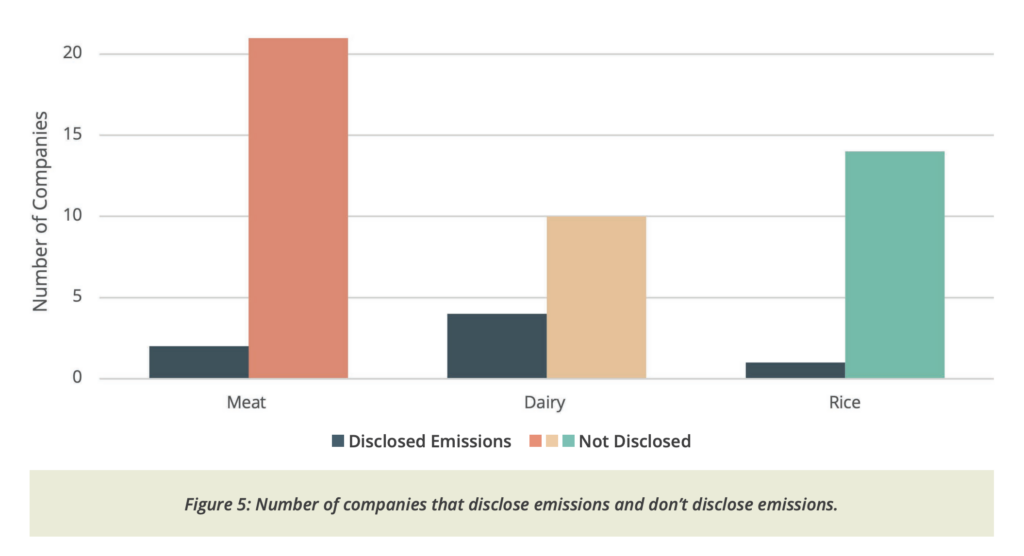
Yet, three of these provide only scope 1 emissions (which make up a fraction of their footprint), and three others report limited scope 3 emissions. Only Danone has a “reasonably broad” disclosure of its methane emissions (from fresh milk, which accounts for 70% of its emissions). In fact, the French dairy giant is the only producer in the analysis that has set a specific methane reduction target.
“If a giant like Danone can convincingly commit to cutting methane emissions, why can’t other companies?” said report author Ailish Layden.
Planet Tracker also estimated emissions for companies that don’t disclose their data, and found JBS to be the worst polluter, with more than three times as many emissions as the second-largest emitter, Marfrig. Beef and dairy producers represent 85% of the total emissions.
Rice companies have largely been overlooked (despite the sector being responsible for 8% of global methane output), but the report suggests that multiple solutions exist to reduce their impact. This week, the Global Methane Hub kicked off a $30M accelerator to cut methane emissions from this sector.
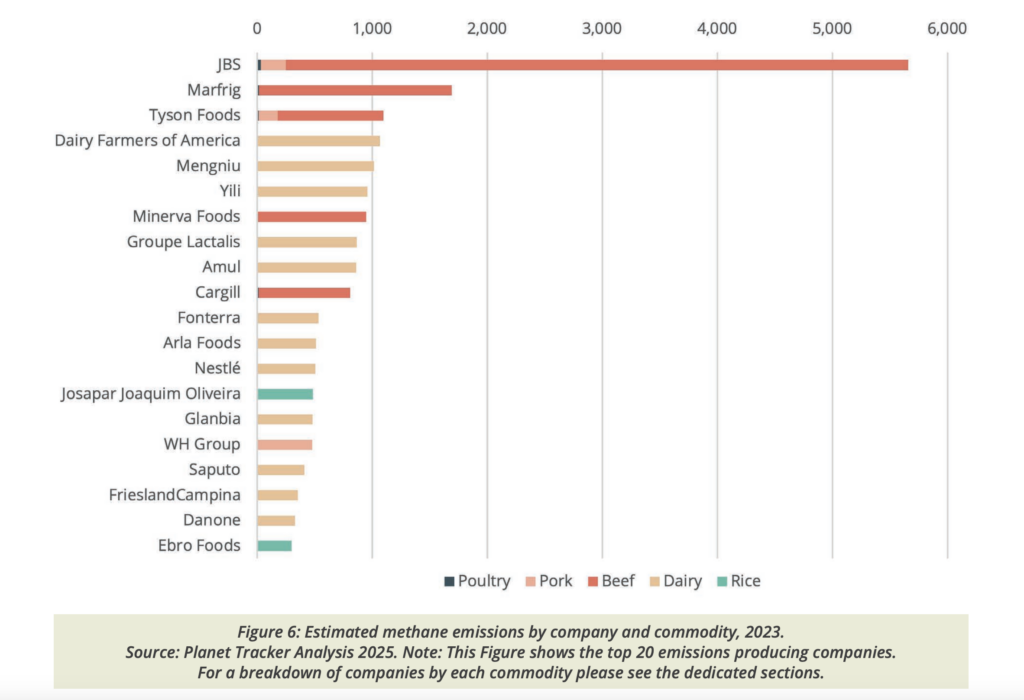
How investors can usher in a methane transition
The report suggests that dairy companies are further ahead in identifying methane abatement levers, with Arla, Fonterra, Danone, Nestlé and FrieslandCampina all quantifying the potential of measures. But these plans are rarely time-bound or linked to clear implementation pathways at the farm level. Meat and rice producers, meanwhile, lag much further behind.
“Without stronger action on methane from these agrifood giants, the Global Methane Pledge is unachievable,” said report author Emma Amadi. “Investors have a key role in pushing companies to disclose and set explicit targets to reduce their methane emissions, as well as in financing high-impact solutions to bring down emissions.”
Currently, corporate investment in methane reduction is skewed towards manure-based solutions (like anaerobic digesters). But Planet Tracker argues this should be focused on enteric methane and irrigation-based solutions, as digesters only address a fraction of livestock emissions and could incentivise herd expansion, leading to higher enteric methane emissions.
Aligning companies’ targets with the Global Methane Pledge could help support global efforts to stay within the 1.5°C limit. “By raising the bar on disclosure, target setting and abatement planning, financial institutions can protect long-term value by reducing climate, transition, reputational and regulatory risks in global food and agriculture supply chains,” the report states.
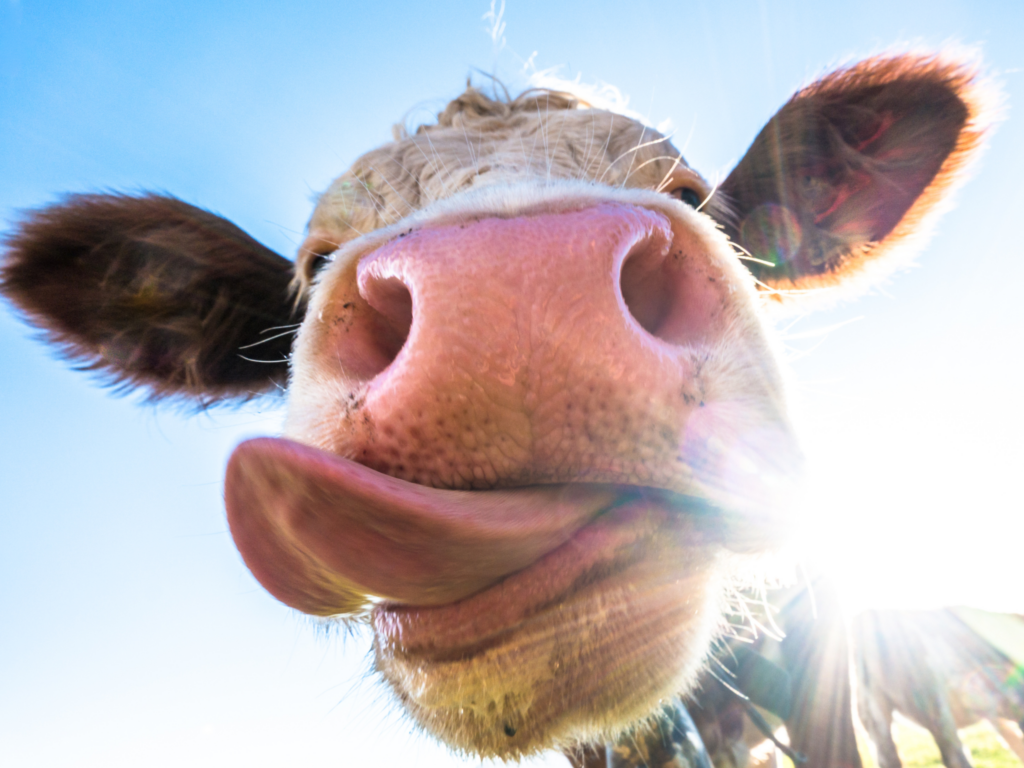
Investors should demand full methane disclosure across supply chains, according to Planet Tracker, and insist on absolute, third-party-verified reduction targets and time-bound methane action plans. Financial institutions should engage food companies to help adopt solutions that tackle enteric fermentation and avoid overreliance on manure-to-energy projects.
In fact, methane should be treated as a financially material climate risk. Banks, asset managers and insurers can build methane performance metrics into investment decisions and stewardship strategies.
Finally, investors should support a just transition for farmers, particularly smallholders, providing them with finance, training and technical assistance to implement reduction strategies that can improve productivity and livelihoods.
“The next five years are decisive,” Planet Tracker states. “Accelerating methane reductions in meat, dairy and rice production is not only essential for climate stability, but will also deliver co-benefits for food security, public health, ecosystems and farmer livelihoods.”
The post Inaction from Meat & Dairy Giants Makes Global Methane Pledge ‘Unachievable’ appeared first on Green Queen.
This post was originally published on Green Queen.